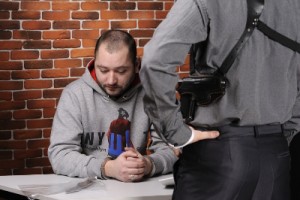
In Seattle v. St. John, the WA Supreme Court held that police may obtain a search warrant for a blood sample when motorists refuse to give a breath test.
After crashing his motorcycle in Seattle, Robert St. John was investigated for DUI. A police officer asked St. John to consent to a blood alcohol test. St. John refused. The officer obtained a warrant for the test. The results were suppressed in municipal court based on a broad interpretation of a provision of the Implied Consent Law that prohibits performing the test once consent has been refused. The superior court reversed and the Court of Appeals certified three questions to the Supreme Court:
1. Does the implied consent statute allow the State to administer a blood alcohol test pursuant to a warrant after a driver has declined a voluntary blood alcohol test?
2. Does an implied consent warning violate due process if it does not inform drivers that an officer may seek a warrant for a blood alcohol test even if the driver declines the voluntary blood alcohol test?
3. Does the doctrine of equitable estoppel bar the State from seeking a warrant for a blood alcohol test after informing drivers that they may refuse the voluntary blood alcohol test?
The WA Supreme Court upheld the superior court and allowed the blood test evidence. They reasoned that the Implied Consent law restricts performing a blood test pursuant to that law, but does not prohibit performing a blood test pursuant to a lawfully issued warrant (RCW 46.20.308). Similarly, the officer’s statements about the Implied Consent law did not foreclose his obtaining the warrant.
I echo the dissenting opinion of Justice Charles Sanders. Simply put, an officer cannot force a driver to submit to a blood test if the driver refuses consent. However, under the majority opinion’s reasoning, a driver’s refusal to consent to a Breath test is essentially meaningless.
Please contact my office if you, a friend or family member are charged with a crime. Hiring an effective and competent defense attorney is the first and best step toward justice.






